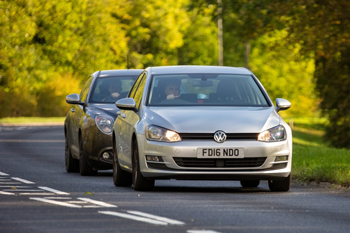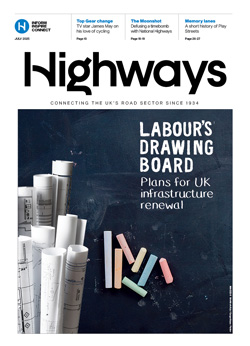A new study has quantified aggressive driving behaviours for the first time, potentially allowing in-car monitoring systems and nearby autonomous vehicles to trigger counter-measures.
In a review of existing research on the issue, the University of Warwick measured the changes in driving that occur in an aggressive state.
Zhizhuo Su, the lead author of the study and a PhD student at the Institutes of Digital Healthcare and Intelligent Vehicles, WMG, said: ‘This research is significant because, as the era of autonomous vehicles approaches, road traffic will be a mix of both autonomous and non-autonomous vehicles, driven by people that may engaged in aggressive driving.
'This is the first study to characterise aggressive driving behaviour quantitatively in a systematic way, which may help the autonomous vehicles identify potential aggressive driving in the surrounding environment.'
 Studies typically asked participants to recall angry memories, putting them in an aggressive state, while performing a driving simulation
Studies typically asked participants to recall angry memories, putting them in an aggressive state, while performing a driving simulation
The key findings were that aggressive drivers have a 5km/h mean faster speed than non-aggressive drivers and exhibit more mistakes than control groups – such as not indicating when changing lanes.
Roger Woodman, assistant professor at WMG at the University of Warwick and co-author of the study, said: ‘Over the last few decades, road safety policies, infrastructure changes, and improved vehicle safety have significantly reduced road casualties. However, human error, which is often a result of aggressive driving, remains a leading cause of crashes.
‘To make driving safer, our research focuses on methods for understanding the state of the driver, to identify risky driving behaviours, through the use of driver monitoring systems.
‘This will enable the driver to be alerted when they are at an increased risk of an accident and allow the vehicle to deploy calming methods, such as altering the cabin noise level, playing relaxing music, or ultimately reducing the speed of the vehicle.’
Detective Chief Superintendent Andy Cox, National Police Chiefs’ Council lead for fatal crash investigation, added: ‘In the UK, on average between four-five people die every single day in a road crash. This widespread devastation is predominantly caused by dangerous and reckless drivers.
‘Those drivers who choose to commit road crimes such as aggressive driving, intimidating other sensible and safe road users – should recognise the risk they pose to themselves and others, and frankly the law should remember that a driving licence is assigned after a person demonstrates themselves to be safe and earns the right to drive.’





